SUMMARY
This is AI generated summarization, which may have errors. For context, always refer to the full article.
![[ANALYSIS] Tips for lawmakers probing the Oriental Mindoro oil spill](https://www.rappler.com/tachyon/2023/04/20230404-tips-probing-mindoro-oil-spill.jpg)
A concerned citizen who has been following Rappler’s articles on the Oriental Mindoro oil spill has given valuable information that can help policymakers come up with rules and laws that may help prevent oil spills from happening.
This citizen is familiar with the operations in private ports, having previously worked in one for almost a decade. The citizen reached out to Rappler due to his worry about the negative impact of the oil spill on communities and the environment, and provided valuable food for thought for policymakers.
Here are some points raised by the concerned citizen, who requested anonymity but agreed to go on record with the suggestions below.
Probe activities in private ports
In the first and only hearing so far that was held by the Senate committee on environment, natural resources and climate change on March 13, among the important discoveries were:
- the oil tanker, MT Princess Empress, sailed nine times (including the time when it sank) despite not having an updated amended Certificate of Public Convenience as required by the Maritime Industry Authority (MARINA)
- MT Princess Empress was allowed by the Philippine Coast Guard to sail even though not all the boxes on the pre-departure check list were ticked.
The concerned citizen is thus asking legislators to probe the activities in private ports.
In this particular incident, MT Princess Empress left the private port, SL Harbor Terminal, in Limay, Bataan with over 800,000 liters of industrial fuel oil. This port is operated by SL Harbor Bulk Terminal Corp. (SLHBTC), a subsidiary of San Miguel Shipping and Lighterage Corporation. From the Senate hearing, it would appear that there was no actual inspection done by the Coast Guard of MT Princess Empress, and that it relied purely on the documents presented by the ship owner, RDC Reield Marine Services.
Some questions:
- Are there actual inspections done by the Philippine Coast Guard in private ports?
- Does the coast guard have enough personnel to inspect both public and private ports?
- Why the apparent laxity in allowing MT Princess Empress to sail nine times?
- From where did MT Princess Empress leave in its eight previous trips?
With the risks involved in shipping industrial fuel oil, also called “black oil” and considered “toxic,” shouldn’t the coast guard and MARINA be strict in inspecting these ships? Given a recommendation that pre-departure inspection should no longer be part of coast guard duties since the Philippines is the only country that has tasked the agency to perform such function, what other measures should be in place to regulate ships carrying hazardous materials?
Check accountabilities of charterer
The concerned citizen also brought up the need to look into the charterer of the vessel, which no government agency has yet revealed and no company has owned up to despite losing most of the 800,000 liters of oil.
San Miguel Corporation (SMC) president and CEO Ramon Ang neither confirmed nor denied a Rappler report on SL Harbor Bulk Terminal Corporation as the charterer of the vessel, except to say that his company has been a client of RDC Reield Marine Services (RDC) for its oil shipments.
Questions: What steps did the charterer take to ensure that the cargo would reach its destination (in this case, Iloilo) safely? What are the responsibilities of the charterer to his company and clients? Is it a corporation that professes to be socially responsible? What internal rules does it have to ensure that its cargo is shipped safely?
Did the charterer review the records of the shipping company in light of allegations of regulatory shortcomings? Shouldn’t the charterer have done due diligence of the shipowner – RDC Reield Marine Services – as suggested by MARINA’s legal chief? Can charterers be made liable if, for instance, there was overloading?
It’s important to note that in the Guimaras oil spill in 2006, the charterer, Petron Corporation, then owned by Saudi Aramco after Petron was privatized, was found liable by the Special Board of Marine Inquiry of overloading the MT Solar 1. Petron appealed this finding and its appeal was still pending as of end of 2022, nearly 13 years after the oil spill. Days after the sinking of the oil tanker, Petron also admitted to being the charterer and helped in the clean-up, in contrast to this latest oil spill where the charterer has not owned up.
The concerned citizen says lawmakers and policymakers should be made aware of the important role of the charterer of an oil tanker, especially when it comes to safety. If a charterer isn’t responsible, there is greater risk of an oil spill, with disastrous impacts on people’s livelihood and marine resources.
The concerned citizen said legislators should consider passing a law that would hold the charterer and cargo owner also accountable when it comes to handling hazardous materials. This has also been suggested by lawyer Tony La Viña, ex-environment undersecretary and former dean of the Ateneo School of Government. Under the Oil Pollution Compensation Act of 2007, liability is placed on the shipowner, and the company can just rely on his insurer to cover for his losses.
Check ship’s safety records
With respect to the shipowner, the concerned citizen said probers should look into its safety records and see if it has been complying with regulations.
Did it have the right safety equipment on board? Did the MT Princess Empress have safety incidents prior to the day it sank off Naujan, Oriental Mindoro? The probe being undertaken by the Department of Justice/National Bureau of Investigation is important in this regard. How is the relationship between RDC’s crew, the charterer, the Coast Guard, and MARINA?
The concerned citizen has been moved by the loss of livelihood this oil spill has had on poor families, especially fisherfolk, in Oriental Mindoro, Batangas Palawan, and Antique, as well as the long-term impact on the country’s biodiversity. It would seem the Philippines hasn’t learned from the Guimaras oil spill.
The concerned citizen is hoping there are politicians who are true to their duty of conducting inquiries in aid of legislation for the public good. “Ang nakakalungkot po talaga ay hindi na natin alam kung sinong politiko ang tapat sa tungklin to dig deep dito sa issue na ito,” the citizen said.
(What’s sad is we do not know if there is a politician faithful to his/her duties who will dig deep into this issue.) – Rappler.com
Add a comment
How does this make you feel?
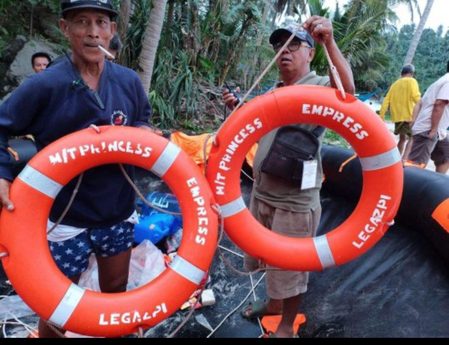
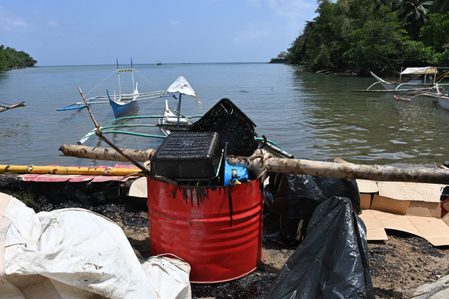













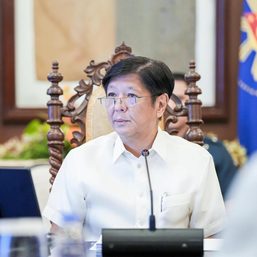
![[WATCH] #TheLeaderIWant: Filipino voters sound off on community issues a year before 2025 elections](https://www.rappler.com/tachyon/2024/05/filipino-voters-sound-off-on-community-issues-1.jpg?resize=257%2C257&crop=276px%2C0px%2C720px%2C720px)
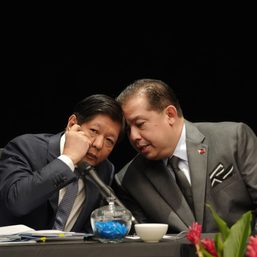




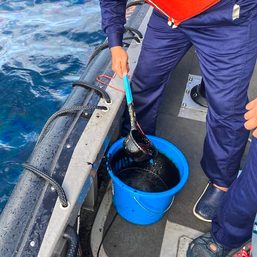





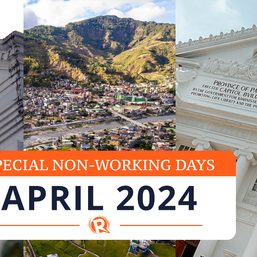
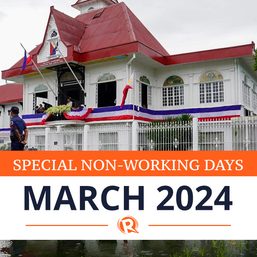
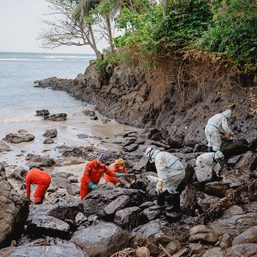



![[WATCH] Bamban POGO scandal: There’s a bigger fish than Alice Guo](https://www.rappler.com/tachyon/2024/07/inside-track-tcard-bamban-pogo.jpg?resize=257%2C257&crop=435px%2C0px%2C1080px%2C1080px)
There are no comments yet. Add your comment to start the conversation.